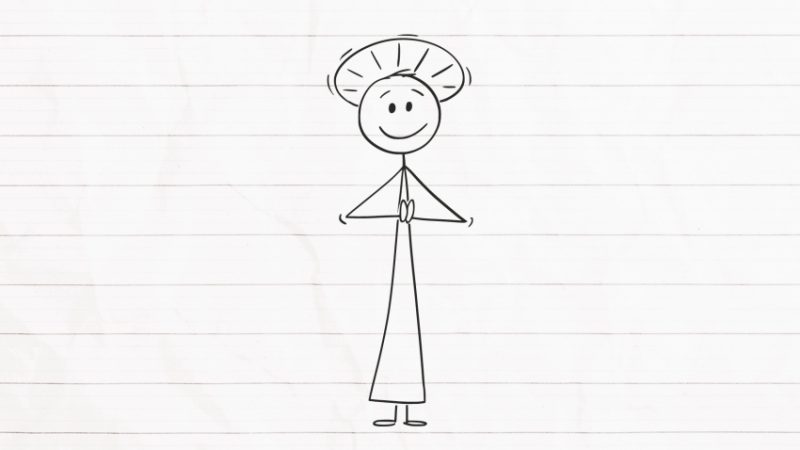Framing – How to turn classroom chores into sought-after perks

The way we present tasks shapes how students perceive them – and in turn, how well they’ll take to them, observes Colin Foster…

- by Colin Foster

When I was training to teach, registers still existed in paper form. Someone had to physically carry them to the school reception after form time.
I can recall watching one teacher take their register at the start of the day. After she’d finished, she looked around the classroom and asked, “Who’s sitting nice and straight?” Everyone immediately assumed an even straighter posture than they’d had already. “Arun, you’re sitting nicely. You can take the register back.” Arun fist-pumped – “Yes!” – and with a spring in his step, gladly took the register from the teacher and hurried off to reception.
The following day, I observed the class next door at the same time of day. After taking the register, this teacher similarly looked around the classroom. “Ryan, you’re talking. Take the register to reception.” Ryan protested – “Oh, miss!” – but the teacher insisted. The other children laughed as he got up, took the register from the teacher with his fingertips as if barely wanting to touch the thing, and reluctantly slunk off down the corridor.
I gather that some days, pupils dropped the register on the way or didn’t leave it in the right place. Teachers would then have to deploy further punishments to address these little protests against the system.
Socially constructed
How could the same, simple job of returning the register be a reward in one class and a punishment in the class next door?
We could say that the job was ‘socially constructed’ in different ways between those two adjacent classrooms. After all, what is a register, really? Just a folder of papers. But it becomes a big deal – for better, or for worse – because of how it’s viewed by the community. The job of taking back the register becomes either desirable or undesirable, depending on how we talk about it. On how it is framed.
I believe that the same priciple applies to many things that happen in school. Is it a privilege to hand out the textbooks or a chore? When the teacher asks a student to help rearrange the classroom furniture, is this perceived as showing how responsible the teacher believes the student to be, and therefore a way of contributing to everyone’s learning? Or just something annoying that keeps them from enjoying their break time, to which they feel entitled?
I’ve often noticed that the same tasks a teacher might employ in a detention, such as cleaning and tidying up the classroom, are tasks that other students might have well volunteered to do for fun. I remember one child who loved being given gloves and tools to scrape chewing gum off desks. But if certain tasks become labelled as ‘detention activities’, it naturally follows that no one’s going to want to do them any more.
Positives into negatives
If we’re not careful, we can poison the well by turning things children may like to do – or at least, not mind doing all that much – into tasks they most certainly don’t want to do.
This is a particular danger whenever reading or writing is used as a punishment. I once saw a deputy head knock on the maths department’s office and ask for some ‘really boring maths questions’ for a naughty student to complete in isolation. The head of maths quickly sent him packing, empty-handed, telling him that there’s no such thing as ‘boring maths’, before muttering that ‘Maths isn’t a punishment’.
Similar issues can arise when physical exercises are used as punishments. All that these practices do is teach students that they shouldn’t want to write, or do mathematics, or run, or be helpful. These things are obviously bad, because they’re used as punishments.
Framing can therefore be our enemy, but it can also be our friend. It will operate regardless, but we can make it either work for us or against us.
The economist and Nobel Laureate, Richard Thaler, and Harvard Law School professor, Cass Sunstein, were the originators of Nudge Theory – the idea that by shaping an environment, you can influence the choices people will make. Not via heavy-handed, oppressive control, but rather by ‘nudging’ people in the direction you want them to go, through the manipulation of ‘choice architecture’.
Make it really, really easy for people to do the thing you want them to do, and make it really, really difficult for them to do the thing you don’t want them to do. And then let them choose.
Subtle wording
Framing can be very subtle, to the point where students may not even notice you’re doing it. Even another teacher observing your lesson may be none the wiser. What you’re doing is using framing to shape the school environment and nudge your students towards ultimately positive, as opposed to negative outcomes.
For example – you cold-call a student with a question, and they reply with “Dunno.” Do we frame this as them simply not knowing and then move on? Or do we instead verbally imply that they’re not ready yet to give us an answer, and will thus return to them shortly for another chance, once they’ve had a little more thinking time?
Someone hasn’t completed some homework. We could frame this as, ‘That means you have to come back here at break time and do it.’ Or, we could go with ‘I’m going to help you catch that up here with me at break today.’ The wording is subtly different, so much so that it’s barely noticeable, but alterations like this, repeated across the thousands of typically brief interactions teachers have with their students each day, can determine the framing for your own specific culture of ‘The way we do things round here’.
Helping ourselves
Framing can also be a way to address attitudes, as well as behaviours. What’s the opposite of someone who loves maths? The obvious answer might be ‘Someone who hates maths’ – but how can we frame this differently? What about, ‘Someone who doesn’t yet love maths’, or ‘Someone who needs to help to see why maths could become a subject they love’? These framings both assume some degree of malleability, rather than fixedness, in attitudes that will leave room for growth.
Different framings can even help us teachers to do better ourselves. Someone once advised me of what to do when you forget a student’s name. The natural thing is to say, “Sorry, I’ve forgotten your name…” but that’s something of a dead end. The student tells you their name again, and you try once more to remember it.
The better advice is to instead say, “Sorry, I’m trying to remember your name.” It’s surprising how often just this little switch, and the extra time it provides, can genuinely help me to remember the name, when I’m not telling myself that it’s irretrievably ‘forgotten’.
Colin Foster (@colinfoster77) is a Reader in Mathematics Education in the Department of Mathematics Education at Loughborough University, and has written many books and articles for teachers; find out more at foster77.co.uk











